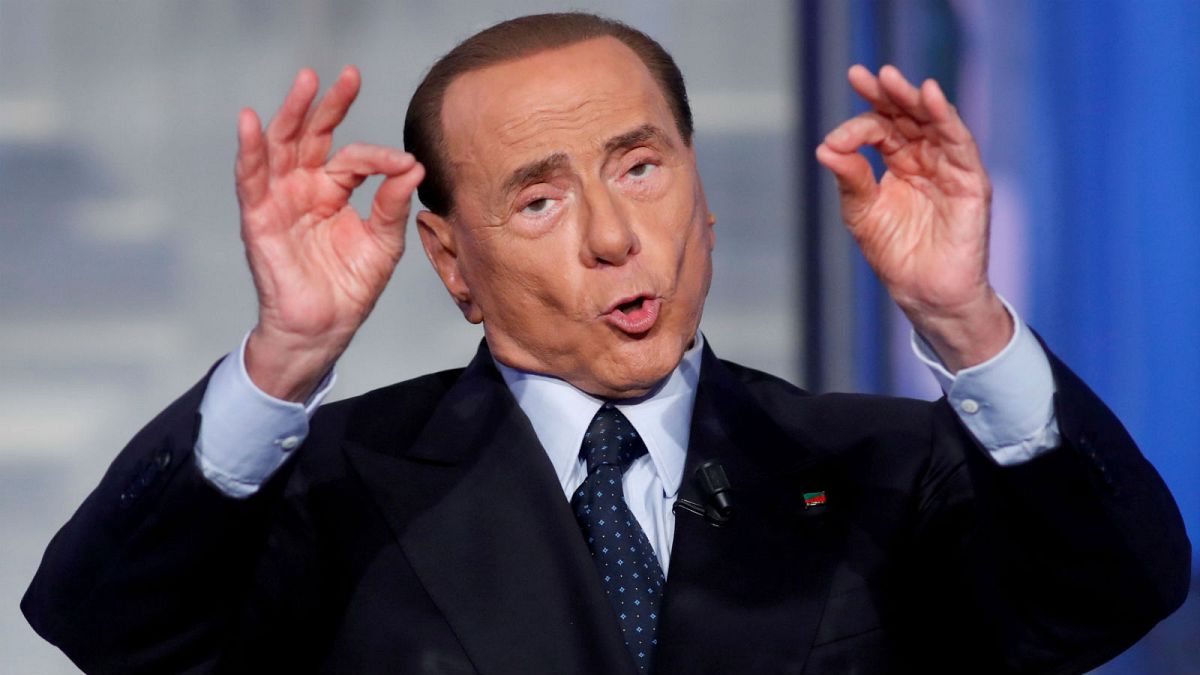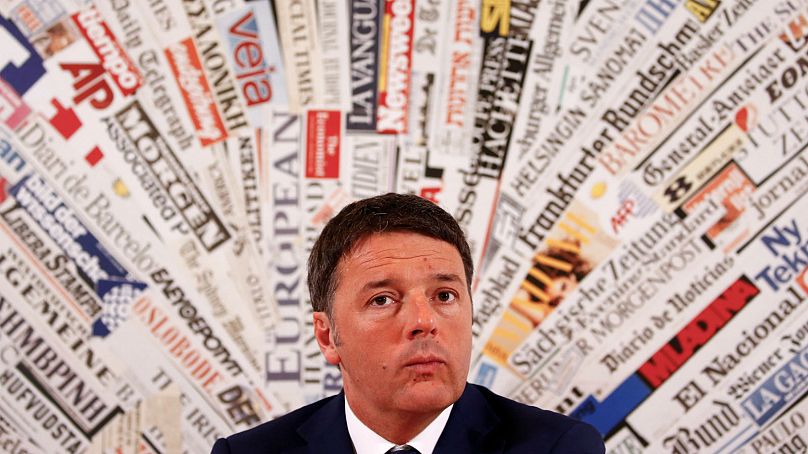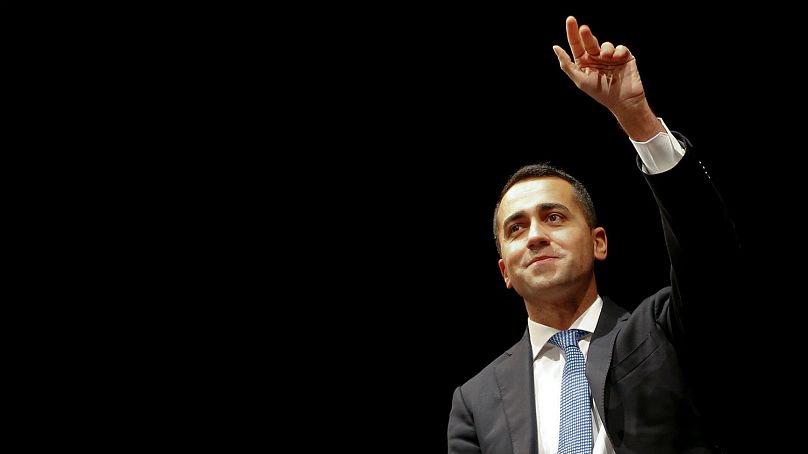All you need to know as Europe’s populist wave is set to gather fresh momentum in Italy’s parliamentary elections on March 4.
Europe’s populist outbreak is set for a key test on March 4 as voters in Italy go to the polls to choose a new government.
Anti-establishment parties have enjoyed a surge in recent years, from Marine Le Pen’s Front National in France to the anti-migrant Alternative for Germany.
Italy — where populist parties have traditionally done well — has Beppe Grillo’s Five Star Movement and the Northern League.
Will they capitalise on the country’s immigration headache, stagnating economy and anti-establishment sentiment?
Why should I care?
If Eurosceptic parties form the next Italian government that could throw a spanner in the wider EU project — still on the ropes after Brexit.
The election outcome will also influence how Italy deals with its huge public debt and have wider ramifications for the Euro area
In addition, Italy is the major door into Europe for African migrants and a new regime may affect how many arrive into the country and beyond.
What’s the back story?
Italy has been governed by a centre-left coalition since its last election five years ago and has gone through three prime ministers in that time: Enrico Letta, Matteo Renzi and latterly Paolo Gentiloni.
Renzi, who at 39 was Italy’s youngest PM, resigned after staking everything on a constitutional referendum — aimed at streamlining the government and speeding-up law-making — that voters rejected by 59% to 41%.
Who are the main parties?
There is anti-establishment party Five Star Movement; the centre-left Democratic Party, who led the ruling coalition from 2013-2018; Silvio Berlusconi’s centre-right Forza Italia; and the Eurosceptic and right-wing Northern League, which has dropped ‘northern’ from its election material in an apparent bid to reach out to more people.
You can read more about who's who in Italy’s election here.
The election has been much touted as the comeback of Berlusconi, who resigned as prime minister in 2011 amid claims he paid for sex with an underage prostitute.
The 81-year-old is currently appealing a ban that prevents him running for public office, following a conviction for tax fraud.
“Berlusconi’s never gone away,” said Daniele Albertazzi, an expert on Italian politics from the University of Birmingham.
“What he’s done is defined as a comeback because he kept quiet for a while. But he was still the leader — and owner — of Forza Italia. He puts money in, it’s his own. People in the party will tell you without Berlusconi it wouldn’t exist.
“He remained leader even after being convicted. He’s never relinquished that. In Italy it’s political leaders that count, not prime ministers.
“He has this fantastic ability to repackage himself as an outsider compared with other political figures, he’s constantly repacking this idea that he’s a businessman and not a politician.”
Key issue: how immigration is dominating the debate
The shooting of five migrants by Italian Luca Traini in early February catapulted immigration to the top of the election agenda.
It was already a key issue: Italy received 119,000 migrants by sea last year, down a third compare with 2016.
Albertazzi told Euronews the national discourse was focussing on the negative aspects of immigration.
“It doesn’t focus on the millions of people who are integrated and who work in the factories of the north, which would have to close without migrant work,” he said.
The strong showing of populist parties such as the Northern League and Five Star Movement — who have hardline policies on illegal immigrants — has pushed Berlusconi’s centre-right Forza Italia to toughen its stance and steal their thunder, according to Stefan Lehne, a visiting scholar at European think-tank Carnegie Europe.
“Berlusconi will say tough things about migration but he was the one who accepted the Dublin regulation, which placed a special responsibility on Italy and he also made the greatest legalisation efforts of migrants,” Lehne told Euronews. “Whereas the current government — that is attacked for being relatively soft on migration — has managed to get a big reduction on the inflow of people from Libya.”
Key issue: how Italy’s weak economy is fueling dissatisfaction
Experts say Italy’s economy is weak and while it is growing slowly the job market remains quite bad.
“I think a lot of anger in the Italian population is fueled by concerns about the economy and dissatisfaction with the functioning of the state,” added Lehne. “Corruption plays a role too, it’s a big issue in Italy.
Unemployment in Italy stands at 10.8% — against an EU average of 7.3% — and has remained stubbornly high for the last five years. The proportion of under-25s out of work, which stood at 32.2% in December 2017, is the second worst in the European bloc.
“The generation of people who are below 40 have really had a very bad deal and this is what fuelled the initial success of the Five Star Movement,” said Albertazzi. “This issue of a generational-divide is as serious as it is in the UK.
“It’s really explosive because you have a generation of older people in Italy who have a pension and are relatively okay-off. Then you have the people below 40 who in many cases are working on the basis of temporary and casual contracts.”
Key issue: voters lack of trust in political institutions
“You have really widespread scepticism in Italy that translates into this sense you are powerless and there is nothing you can do to improve your own position,” said Albertazzi.
“This fuels anti-elite, anti-politician rhetoric. It’s interesting that the people quite good at voicing this rhetoric are people who have been in politics for decades!
“Berlusconi is the most-seasoned politician in Europe and the oldest party in the Italian parliament, Northern League, together with the Five Star Movement, are very good at fueling this sense of desperation and the feeling that the country’s political institutions are working against the interests of the people.”
What is likely to happen?
Final opinion polls on Friday (February 16) showed a clear lead for Berlusconi’s centre-right bloc, which includes the Northern League.
But despite the alliance’s advantage it is unlikely to get a working majority, according to latest surveys of voters’ intentions.
Albertazzi said if no party emerges with a majority the most likely scenario would be a pact between Forza Italia and the Democratic Party.
He said it wasn’t impossible that Five Star Movement — the leading single party in the latest opinion polls — could join forces with the Northern League to govern.
But this could prove problematic for Five Star’s voters, the majority of whom are left-leaning, according to Albertazzi.
He added a Forza Italia-Democratic Party alliance would be unstable, because if Berlusconi won his appeal on running for office he might withdraw support for the coalition in a bid to return as prime minister.
Whatever the outcome, experts are predicting more instability for Italy.
“I think European politics in general will remain very unstable and volatile and I think Italy will continue to be right at the front,” said Lehne.
“I think there are problems structurally embedded in Italy like an underperforming state, the lack of trust of people in government and the relatively high level of corruption: that’s been endemic for decades and decades and these things don’t go away within a few years, it’s a matter of generations.”
What will the impact be on Europe?
There was a time when the populist parties were threatening to call a referendum on Italy’s membership of the Euro.
But experts now say this is highly unlikely, especially given parties have softened their stance on the single currency.
“At the moment a lot of this talk is science fiction,” said Albertazzi. “The mistake is to take them seriously.
“They know that the Euro is very much disliked. So of course they talk about it.
“But Italy is not the UK, there are very big differences in many ways. Like its manufacturing sector, which is the second largest in the EU, Italy hasn’t developed into a country that relies entirely on financial services.
“And it’s precisely the regions that provide support for the Lega Nord that depend on this manufacturing effect.”




